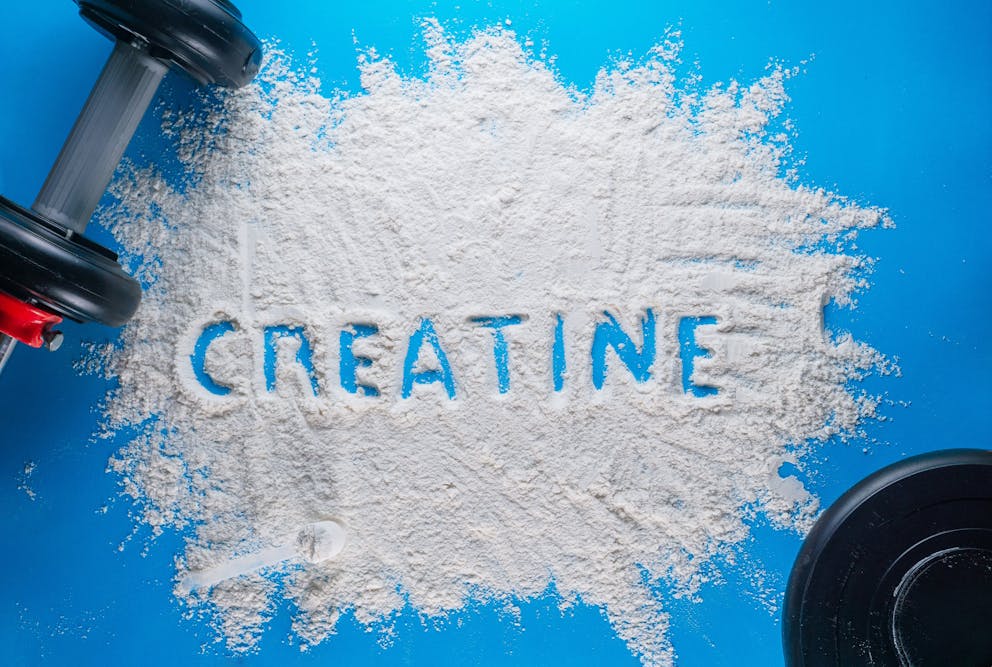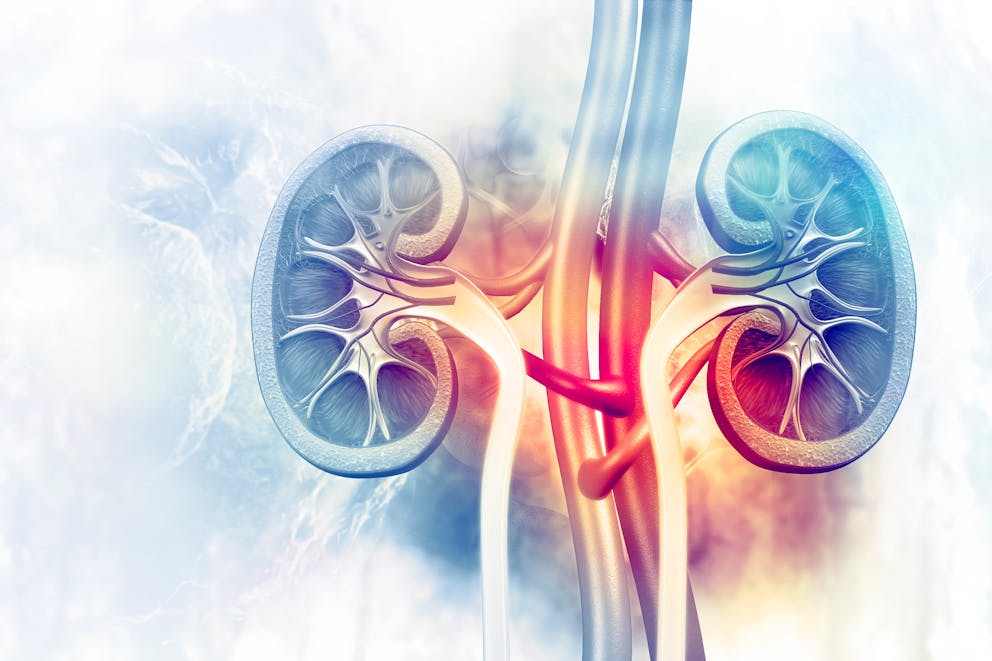Reasons for High Creatinine on Ketogenic Diet

Beginner’s Guide to Healthy Keto & Intermittent Fasting
Receive a step-by-step guide to starting Healthy Keto® and intermittent fasting
Learn about foundational principles and best practices for beginners
Get detailed visual guidance on portion sizes and meal composition
Discover how to set achievable goals and monitor your progress
Find practical tips for overcoming common challenges and staying motivated

Beginner’s Guide to Healthy Keto & Intermittent Fasting
Receive a step-by-step guide to starting Healthy Keto® and intermittent fasting
Learn about foundational principles and best practices for beginners
Get detailed visual guidance on portion sizes and meal composition
Discover how to set achievable goals and monitor your progress
Find practical tips for overcoming common challenges and staying motivated

Beginner’s Guide to Healthy Keto & Intermittent Fasting
Receive a step-by-step guide to starting Healthy Keto® and intermittent fasting
Learn about foundational principles and best practices for beginners
Get detailed visual guidance on portion sizes and meal composition
Discover how to set achievable goals and monitor your progress
Find practical tips for overcoming common challenges and staying motivated

Beginner’s Guide to Healthy Keto & Intermittent Fasting
Receive a step-by-step guide to starting Healthy Keto® and intermittent fasting
Learn about foundational principles and best practices for beginners
Get detailed visual guidance on portion sizes and meal composition
Discover how to set achievable goals and monitor your progress
Find practical tips for overcoming common challenges and staying motivated

Beginner’s Guide to Healthy Keto & Intermittent Fasting
Receive a step-by-step guide to starting Healthy Keto® and intermittent fasting
Learn about foundational principles and best practices for beginners
Get detailed visual guidance on portion sizes and meal composition
Discover how to set achievable goals and monitor your progress
Find practical tips for overcoming common challenges and staying motivated

Beginner’s Guide to Healthy Keto & Intermittent Fasting
Receive a step-by-step guide to starting Healthy Keto® and intermittent fasting
Learn about foundational principles and best practices for beginners
Get detailed visual guidance on portion sizes and meal composition
Discover how to set achievable goals and monitor your progress
Find practical tips for overcoming common challenges and staying motivated

Beginner’s Guide to Healthy Keto & Intermittent Fasting
Receive a step-by-step guide to starting Healthy Keto® and intermittent fasting
Learn about foundational principles and best practices for beginners
Get detailed visual guidance on portion sizes and meal composition
Discover how to set achievable goals and monitor your progress
Find practical tips for overcoming common challenges and staying motivated

Easy Keto and Intermittent Fasting
Discover the fundamentals of Healthy Keto® and intermittent fasting
Understand the unique benefits of combining keto and intermittent fasting
Explore what foods to include and avoid on a Healthy Keto diet
Receive practical advice on common pitfalls and how to overcome them
Get a selection of easy-to-make and nutritious recipes to get you started

Easy Keto and Intermittent Fasting
Discover the fundamentals of Healthy Keto® and intermittent fasting
Understand the unique benefits of combining keto and intermittent fasting
Explore what foods to include and avoid on a Healthy Keto diet
Receive practical advice on common pitfalls and how to overcome them
Get a selection of easy-to-make and nutritious recipes to get you started

Easy Keto and Intermittent Fasting
Discover the fundamentals of Healthy Keto® and intermittent fasting
Understand the unique benefits of combining keto and intermittent fasting
Explore what foods to include and avoid on a Healthy Keto diet
Receive practical advice on common pitfalls and how to overcome them
Get a selection of easy-to-make and nutritious recipes to get you started

Easy Keto and Intermittent Fasting
Discover the fundamentals of Healthy Keto® and intermittent fasting
Understand the unique benefits of combining keto and intermittent fasting
Explore what foods to include and avoid on a Healthy Keto diet
Receive practical advice on common pitfalls and how to overcome them
Get a selection of easy-to-make and nutritious recipes to get you started

Easy Keto and Intermittent Fasting
Discover the fundamentals of Healthy Keto® and intermittent fasting
Understand the unique benefits of combining keto and intermittent fasting
Explore what foods to include and avoid on a Healthy Keto diet
Receive practical advice on common pitfalls and how to overcome them
Get a selection of easy-to-make and nutritious recipes to get you started

Easy Keto and Intermittent Fasting
Discover the fundamentals of Healthy Keto® and intermittent fasting
Understand the unique benefits of combining keto and intermittent fasting
Explore what foods to include and avoid on a Healthy Keto diet
Receive practical advice on common pitfalls and how to overcome them
Get a selection of easy-to-make and nutritious recipes to get you started
Monitoring your health markers regularly is crucial if you're following a ketogenic diet. One such marker is serum creatinine - an often overlooked yet essential indicator of kidney function. But what does this have to do with your keto lifestyle? Let's dive deeper.
The Role of Muscle Metabolism in Creatinine Production
Creatine, found in our muscles, breaks down during physical activity into creatinine at a rate of 1% to 2% daily. This byproduct then travels through our bloodstream until it reaches the kidneys, where it’s filtered out.
A rise in these levels might occur when switching to a keto diet. Why so? This low-carb, high-fat regimen can increase muscle metabolism, producing more creatinine.
However, not all elevated serum creatinine levels are signs of chronic kidney disease or other pathologies.
Sometimes, they reflect physiological changes due to dietary shifts or increased muscular activities – hence its designation as potentially non-pathological on keto diets.
Dietary Factors Influencing Creatinine Levels on Keto
Moving beyond muscle metabolism and exercise routines that could lead to higher-than-usual lab report readings, let's discuss protein intake and supplementation practices.
Impact Of Protein Intake On Creatinine Levels
One aspect worth noting is excessive protein consumption while on a ketogenic diet.
Eating large amounts of proteins like cooked meat might raise your body's level significantly since amino acid breakdown contributes directly towards producing more waste product - namely creatinine - for the kidneys to filter out.
Effects of Creatine Supplementation on Kidney Function
Creatine supplements are like that party guest who never knows when they've overstayed their welcome; they're great initially, but too much can cause problems - elevated creatinine levels being one of them.
Your body naturally produces about 1-2% daily conversion rate worth of creatinine as a waste product. If you're also taking extra supplements while following a ketogenic diet, you may see an uptick in these numbers, leading to renal stress if unchecked.

The Verdict
The ketogenic diet itself doesn't inherently lead to increased creatinine levels; it's more about how you manage this dietary regimen. Ensuring a proper protein intake and monitoring additional supplementation is pivotal for preserving healthy kidney function.
It's worth noting that exercise-induced changes in muscle physiology can temporarily result in higher creatinine levels. This natural response to vigorous physical activity doesn't necessarily indicate kidney damage.
Staying adequately hydrated during exercise and in its aftermath is highly beneficial as it supports kidney function, aiding the body in expelling creatinine and other waste materials.
By staying well-hydrated and following a health-conscious lifestyle, your kidneys should capably manage these fluctuations without complications. Regarding creatine intake, consider foods high in creatine for a more nutritious approach to your diet and fitness routine.
How Injuries and Inflammatory Conditions Can Affect Creatinine Levels
Sometimes, injuries or inflammatory conditions in your body might also cause elevated creatinine levels.
Imagine that you've been working rigorously at the gym and suddenly pulling a muscle. This injury leads to increased muscle metabolism, subsequently increasing creatine production.
This increased amount of creatine then breaks down into higher amounts of creatinine. Your kidneys work diligently to filter out this excess waste product from your bloodstream.
When there are more than usual levels due to some other reason like inflammation or infection, it puts additional pressure on them, causing temporary elevation in serum creatinine levels.
The Link Between Inflammation And High Creatinine Levels
Inflammation isn't always visible from the outside; it can also happen inside your body for several reasons, including chronic diseases like arthritis or lupus, infections (bacterial/viral), and allergies. But why does inflammation lead to raised serum levels?
This happens mainly because, during inflammatory states, tissues tend to break down faster, leading again back towards increased production, thereby making kidneys work harder to filter off these wastes,
Temporarily elevating their presence within the bloodstream until the condition subsides and is appropriately treated by medical professionals based on its severity.
The Role of Gallbladder and Liver Health in Regulating Creatinine Levels
Ever wondered how the gallbladder and liver can play a part in regulating creatinine levels? Let's delve into this surprising connection. These two organs are crucial players in your body’s detoxification process.
Liver Function: More Than Just Detox
Your liver has many roles beyond detoxification. It metabolizes proteins, which produce urea that gets excreted through urine.
This function plays an essential role as when protein breakdown occurs at higher rates (such as on a keto diet), more nitrogenous wastes like creatinine are generated, requiring efficient removal.
Gallbladder and Creatinine Levels
A healthy gallbladder helps digest fats effectively with its stored bile. However, fat digestion becomes compromised when things go wrong - think stones or inflammation.
Unprocessed fats put extra pressure on kidneys already dealing with increased protein metabolism from a ketogenic lifestyle, potentially leading to raised serum creatinine levels.
Fighting Back Against High Creatinine Levels
So what do we do about all this? Start by keeping those livers healthy. Regular exercise, moderate alcohol intake, and good nutrition help keep our livers happy.
Beyond general measures, incorporating liver-friendly foods like green leafy vegetables into your diet can also provide a helping hand.
Limiting high-fat foods and maintaining a stable weight is essential to support gallbladder health. Gallstones are more common in those who eat lots of fats or have significant weight fluctuations.
Dangerously High Creatinine
Elevated creatinine can sometimes be harmless, but at other times it may signal a serious condition such as chronic kidney disease. If you notice symptoms like nausea, swelling in hands or feet, fatigue, and high serum creatinine levels, seek help.
Remember that high-intensity workouts could also raise these numbers temporarily due to increased muscle metabolism. So don't panic right away. Instead, get another test done after resting for several days.

Maintaining Healthy Kidney Function While On Keto
You must ensure that your gallbladder and liver function optimally as they regulate body waste products, including creatinine. Inflammation or injuries affecting these organs can disrupt their functioning, increasing creatinine levels.
So, take good care of these organs by following a nutritious diet and avoiding unnecessary supplements or medications.
Conclusion
Monitoring serum creatinine levels is vital for those following a ketogenic diet, as it can serve as an essential indicator of kidney function. While the ketogenic lifestyle itself doesn't inherently lead to elevated creatinine levels, various factors such as muscle metabolism, protein intake, and supplementation practices can influence these levels.
It's essential to strike a balance by ensuring proper protein intake, monitoring supplementation, and staying adequately hydrated.
Additionally, factors like injuries, inflammation, and gallbladder and liver health can also impact creatinine levels, underscoring the importance of maintaining overall health while on a keto diet.
By adopting a health-conscious approach and seeking medical advice when needed, individuals can effectively manage creatinine levels and support kidney function, thereby promoting long-term well-being and success on their ketogenic journey.
Previous blog
Will Skipping Meals Spike Your MetabolismNext blog
What is Water Fasting?Tags

Popular
08/21/2024
55.7K views
02/23/2025
46.8K views
11/18/2024
281.1K views
03/18/2024
11/21/2022




